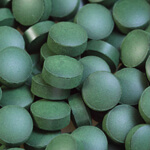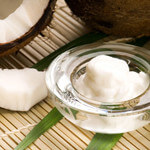 Chlorella is a single-celled, green algae that grows in the sunniest parts of freshwater bodies. According to Dr. Beth M. Ley, author of the book Chlorella: The Ultimate Green Food, it is one of the Earth’s oldest living organisms, and has been harvested as a food source for thousands of years. However, a true understanding of chlorella’s nutritional value only emerged in the 20th century, when Western scientists began to study its chemical composition. By the beginning of the 21st century, chlorella – like spirulina, another algae with an amazing nutritional profile – had earned “superfood” status. This article contains a list of studies proving that this status is well-deserved.
Chlorella is a single-celled, green algae that grows in the sunniest parts of freshwater bodies. According to Dr. Beth M. Ley, author of the book Chlorella: The Ultimate Green Food, it is one of the Earth’s oldest living organisms, and has been harvested as a food source for thousands of years. However, a true understanding of chlorella’s nutritional value only emerged in the 20th century, when Western scientists began to study its chemical composition. By the beginning of the 21st century, chlorella – like spirulina, another algae with an amazing nutritional profile – had earned “superfood” status. This article contains a list of studies proving that this status is well-deserved.
List of Health Benefits
Extremely dense in nutrients – First and foremost, chlorella is densely packed with large concentrations of vitamins and minerals. Spectral analysis provided by Self‘s “NutritionData” shows that a 28 gram (1 ounce) serving of dried chlorella contains 202 percent of our RDI of iron, 287 percent of our RDI of vitamin A, 133 percent of our RDI of zinc, 33 percent of our RDI of protein, and large quantities of B-vitamins, magnesium, and phosphorus. It also contains smaller quantities of calcium, and vitamins C and E. Many of these vitamins and minerals are antioxidants that protect our bodies from the cell-destroying effects of free radicals which, in turn, guard us from degenerative diseases. Chlorella’s high protein content has made it an especially popular health supplement among bodybuilders, especially vegetarian bodybuilders.
Anti-cancer properties – Research suggests that chlorella has anti-cancer properties. A February 1998 study published in the Cancer Immunology Immunotherapy journal, for instance, showed that a protein extracted from chlorella could inhibit the spread of cancer cells in mice. This research was buttressed by a later 2009 study published in the Journal of Zhejiang University, which discovered that Chlorella vulgaris (a common type of chlorella) has “definite chemopreventive effect by inducing apoptosis.”
Guards against diabetes – According to a 2009 study published in Nutrition Research and Practice, diabetic rats that were fed chlorella experienced lower levels of fasting glucose than the rats that weren’t fed chlorella. Additionally, HOMA-index (a scoring of insulin resistance) was lower in the chlorella-fed rats. Of course, being a high-protein whole food, chlorella also contains a low GI index.
High in RNA and DNA – In her book, Natural Healing Wisdom & Know How, Amy Rost notes that chlorella could aid our adrenal glands due to its high levels of RNA and DNA. These two nucleic acids, coupled with chlorella’s considerable amino acid, fiber, and chlorophyll content, can help rejuvenate our adrenals and cleanse them of toxins. Moreover, according to chlorella researcher, Dr. Bernard Jensen, foods rich in nucleic acids can boost longevity: “Foods rich in nucleic acids provide cell-protective effects which help ensure long life. The body can absorb and use nucleic acid components directly, which saves the energy that would normally be used in synthesizing them.”
Prevention of serious diseases – A 2001 study published in the Alternative Therapies in Health and Medicine journal showed that chlorella could reduce blood pressure, lower cholesterol, accelerate would healing, and boost immune function. These impressive results lead the researchers to conclude: “The potential of chlorella to relieve symptoms, improve quality of life, and normalize body functions in patients with fibromyalgia, hypertension, or ulcerative colitis suggests that larger, more comprehensive clinical trials of chlorella are warranted.”
Note: Since chlorella absorbs everything in its immediate environment (including pollution), it’s important that you purchase spirulina from reputable sellers who cultivate organic chlorella in clean, unpolluted environments.






